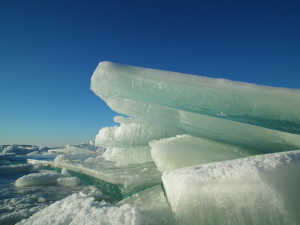Brainstorm for future
One characteristic of international law is that it is often described as a dynamic legal treaty or by customary international law being established through state general practice and being defined as “accepted law”. Another characteristic is that international law may be of a general character, but also that it is geographically limited to a specific area. An example of the latter is the Svalbard Treaty where a need was seen for a particular treaty and where the geographical application is defined to the islands of Svalbard and its territorial waters. VIDEO. https://www.youtube.com/watch?v=MwUNssotUws
Zero tolerance for greed empowers justice.
It may not come as a surprise that in an area like the Arctic where many are showing their interests, which is assumed to contain valuable resources and where it is the particular vulnerable environment, the question would be raised of a special Arctic Treaty to reflect the peculiarities of the area. Article 234 of UNCLOS III and the IMO Guidelines both indicate the need for special legal instruments in the Arctic, but they are at the same time examples of such instruments being established within already existing legal framework. In regard to an Arctic Treaty it seems relevant to remind that the U.N. Convention on the Law of the Sea has been described as “possibly the greatest legal development ever to take place”. It thus seems relevant to assume that there will be ways to relate to maritime matters in the Arctic within the legal framework of this Convention. It is also worth noticing that the IMO Guidelines for ships operating in Arctic ice-covered waters now are moving in direction of becoming legally binding, and if so, this will be a major part of what should be comprised by an Arctic treaty as such.On what basis does a Nation have the right to conquer and claim more territory in self-interest.
Concrete initiatives for a specific Arctic treaty have not cued up to speak. The most comprehensive suggestions have been generated by the World Wildlife Foundation (WWF), which has proposed the following : Based on a problem- and gap analysis , it is concluded that the legal instruments relevant to protecting the Arctic marine environment is incoherent and incomplete, does not take into the account the reality of ecosystems, and fails to take into account the effects of various activities, such as oil and gas and fisheries, cumulatively. On this background, the WWF propose the negotiation of a new legal instrument providing for developing a new international framework agreement covering the entire Arctic, across all sectors. Such a legally binding agreement for the marine Arctic would address the identified governance gaps. This option would allow for management on an ecosystem. The new Arctic Sea emerging from the melting ice requires a regional regime tailor-made for arctic conditions developed under the overarching framework of the United Nations Convention on the Law of the Sea (UNCLOS). Such a regional regulatory and governance framework should ensure:- Protection and preservation of the ecological processes in the arctic marine environment.
- Long-term conservation and sustainable and equitable use of marine resources.
- Sociology-economic benefits for present and future generations, in particular for Indigenous peoples of the Arctic region.
- A new legally-binding comprehensive agreement with a new institutional setup which will be able to ensure protection and preservation of the Arctic Ocean and unsustainable ecosystem-based management of its resources would be an optimal solution in WWF’s view.
- Action to address the unprecedented natural changes the Arctic is facing
Self-justification, defending the ingrained self-serving habits.
[caption id="attachment_33" align="alignnone" width="300"] Copy © All Rights Reserved.[/caption]
Some may say that the to use the Antarctic Treaty as a model seems inadequate: Antarctica is a continent surrounded by oceans, while the Arctic is partly ice-covered waters surrounded by coastal states and with corridors to the Atlantic and Pacific oceans. The European Commission, on the other hand, has not called for an Arctic Treaty, but suggested the implementation of existing obligations rather than creating a new instrument.
It is worth noticing that the most hungry core players in the Arctic, namely the Arctic states Canada, the US, Russia, Norway and Denmark have expressed as their opinion that the present legal framework should be built on, rather than creating a special treaty for the Arctic.
Copy © All Rights Reserved.[/caption]
Some may say that the to use the Antarctic Treaty as a model seems inadequate: Antarctica is a continent surrounded by oceans, while the Arctic is partly ice-covered waters surrounded by coastal states and with corridors to the Atlantic and Pacific oceans. The European Commission, on the other hand, has not called for an Arctic Treaty, but suggested the implementation of existing obligations rather than creating a new instrument.
It is worth noticing that the most hungry core players in the Arctic, namely the Arctic states Canada, the US, Russia, Norway and Denmark have expressed as their opinion that the present legal framework should be built on, rather than creating a special treaty for the Arctic.
Is the current world economic system unsustainable and they are flawed.
Planning for the future of the world should be considered in the light of what is the solution to the obvious problem with increasing global pollution and the inefficient use of the raw materials. With an increase of high technology standards that are more efficient and consistent, and the introduction of renewable energy and new innovative ideas for energy. And not encouraging the use of petroleum powered vehicles for recreation, scrap the petroleum motorsports to start with, and give them pedal power, wind power, solar power and electricity to compete and sort each other out with. It is lame, to guzzle petroleum fuels for weekend entertainment while in the Asian countries they are working on the rice fields to make a living.The Arctic tolerance for natural resource management
They expressed that the current international law:“provides a solid foundation for responsible management by the five coastal States and other users of this Ocean through national implementation and application of relevant provisions.”These states thus saw no need for developing:
“a new comprehensive international legal regime to govern the Arctic Ocean". Additional reference was made to the five Arctic states cooperating closely with its other and with other interested parties, and to a will “to strengthen this cooperation based on mutual trust and transparency.”This was re-iterated in 2009 by Russia, Norway and the EU at a conference titled Arctic Frontiers where these parties stated that UNCLOS III, the IMO and the UN Commission on the Limits of the Continental Shelf are sufficient international instruments for managing the Arctic and the expected results of climate change. The Arctic states make special mention of the Arctic characteristic, and the need to protect the environment, ensure free passage, strengthening the rescue capabilities and to take indigenous people’s needs into consideration.
 Bloggers Guide To Arctic Finland 2020
Bloggers Guide To Arctic Finland 2020 New Book Out!
New Book Out! Travel Guide To Arctic Finland
Travel Guide To Arctic Finland Recent Posts
Recent Posts


Leave a Reply